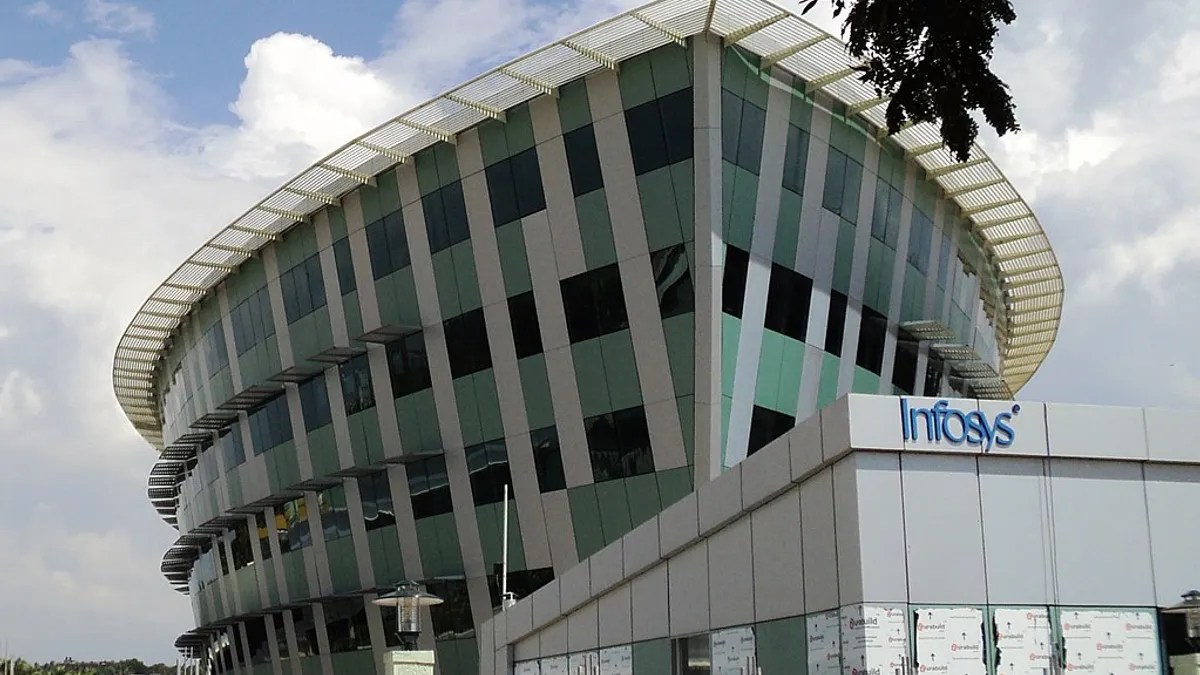Dive Brief:
- Infosys, India's second largest IT services firm, re-announced its 2017 hiring of 2,500 American tech workers during a recent dedication ceremony of its Technology and Innovation Hub in Indianapolis. The company says its hiring of U.S. workers during the past year is part of its ongoing commitment to advance innovation in American businesses. Employees at the new Indianapolis hub will be trained, upskilled and reskilled to help companies advance in the digital transformation, Infosys added.
- While Infosys hired U.S. employees, the company has been laying off some of its Indian employees, Quartz reports, revealing the changing tides of American immigration policy in response to the Trump administration's stances, says Quartz. Infosys says it plans to hire 10,000 American tech workers during the next two years. Speculation is that by "hiring American" or promising to do so, Infosys can keep a lock on the visa program.
- Infosys let 9,000 Indian workers go between January 2016 and January 2017, citing the automation of low-skilled jobs as the cause. The company's workforce shrunk by 1,811 for the first time by the end of 2017's first quarter, while the Indian IT industry laid off 56,000 workers last year, according to Quartz.
Dive Insight:
The largest influx of foreign tech workers through the H-1B visa program has been from India, and Infosys is one of the biggest names in IT talent outsourcing. That the company opted to invest directly in U.S. talent initiatives shows how strong the pushback against the H-1B program — which has been notably swamped with applicants of late — has become.
Promising to train and upskill local workers is not an unusual demand in visa policies. But in today's tough labor shortage, it's clear that more companies are openly changing their strategies to create the workers that they'll need in the future. To remain an agile organization, employers have to start building workforces that are ready for digital transformation, and that includes training for a slew of IT, cybersecurity and data positions.
On top of the increasing demands for talent, U.S. Citizenship and Immigration Services (USCIS) just announced a delay in the fast-track processing of H-1B visas, without saying when it will occur or for how long. Last year, the process was suspended entirely. With this kind of ongoing uncertainty, it's no wonder that more companies are attempting to install their own sort of certainty by focusing on internal talent development. Those employers that can find ways to take advantage of the talent already within their sphere will go a long way in addressing coming business challenges.












